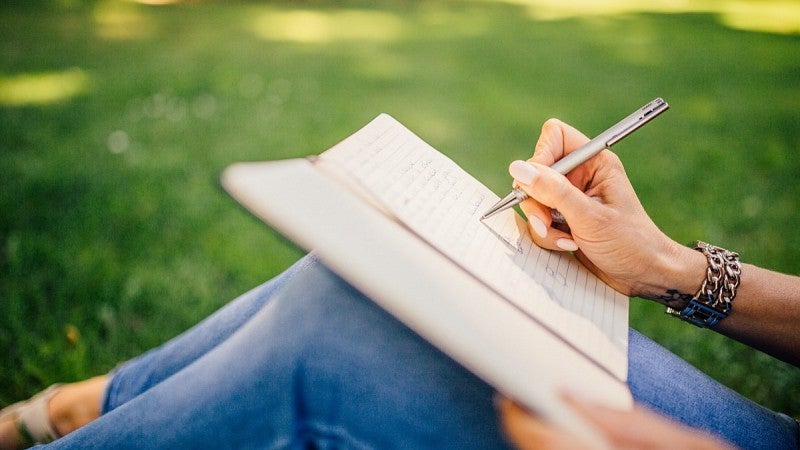
Editor’s note: This post is the first in an ongoing series of student opinion pieces about issues in communication ethics. Check back on the #LifeasaJStudent Blog for future posts in the series. Know of a journalist or news organization that made ethical decisions while publishing a story in 2020? Nominate them by February 15 for the Ancil Payne Award for Ethics in Journalism.
Journalists write stories knowing most readers will only make it through the first paragraph or two, and that’s if they decide to look past the headline.
In this way, we are responsible for deciding what people will take away from a story in just one glimpse. This puts a lot of pressure on journalists to decide the order of importance for each element of the piece. Not only are we charged with sharing news to the public, but we must also try to prioritize what people should know first.
We call this the inverted pyramid in journalism, and it’s something I’ve struggled with since my first news story. At the base of the pyramid, where the bulk of your audience will stop reading, is the “most newsworthy info,” AKA the who, what, when, where, why, and how. This is all to be summarized in a sentence or two.
Next comes the “important details,” but by now we have lost about half of our readers. Finally, at the tip of the pyramid, we provide general background information to whoever has decided to stick around till the end.
In a perfect world, everyone would read the story from top to bottom. However, in the age of five-second ads on YouTube being too much to sit through, people no longer have the attention span to read a full news piece. So, whose quote do we put at the top, and whose do we save until the end, knowing that one will reach more eyes than the other?
Even more difficult is deciding which facts to include in the lede and which language to use to accompany them. Our writing tells our readers how to speak about different things without them even realizing it. Media Ethics is a course at UO, but if you ask me, I think an entire major could be built around it.
Every part of a story is important, including every person interviewed, but some elements must come before others. If I must choose one or the other, I try to push underrepresented voices up further in my stories, given that white male voices have come first for centuries. I also do not think that someone’s physical identity defines who they are, so I don’t introduce subjects with their external qualities.
Media professionals are constantly making mistakes and learning from them, and I doubt a story exists that pleases everyone. Being a journalist is more than asking annoying questions and drinking a lot of coffee; it’s making tough decisions to ensure that people know what’s going on in the world, even if they only see a headline.
— Joanna Mann, class of '21
Joanna Mann, class of ’21, is a journalism major in the SOJC and a writer for the SOJC Communication Team. She is a senior news writer for the Daily Emerald covering the UO Senate, Tuition and Fee Advisory Board and other general news around Eugene. She interned at Eugene Weekly in 2020, where she wrote news and features on the arts & culture world of Eugene.
Know of a journalist or news organization that faced an ethical dilemma while publishing a story in 2020? Nominate them by Feb. 15 for the SOJC's 2021 Ancil Payne Award for Ethics in Journalism. This year’s 21st-anniversary winner will receive a $10,000 prize.
